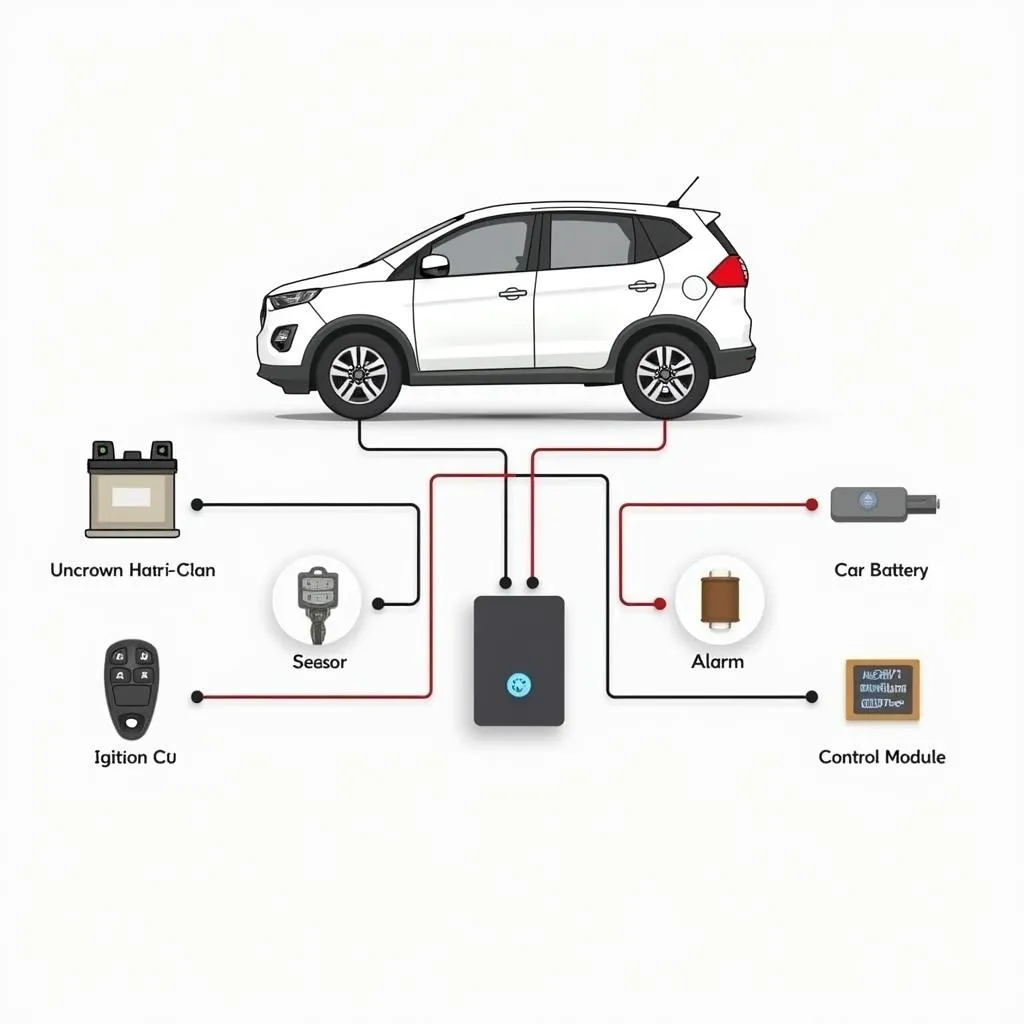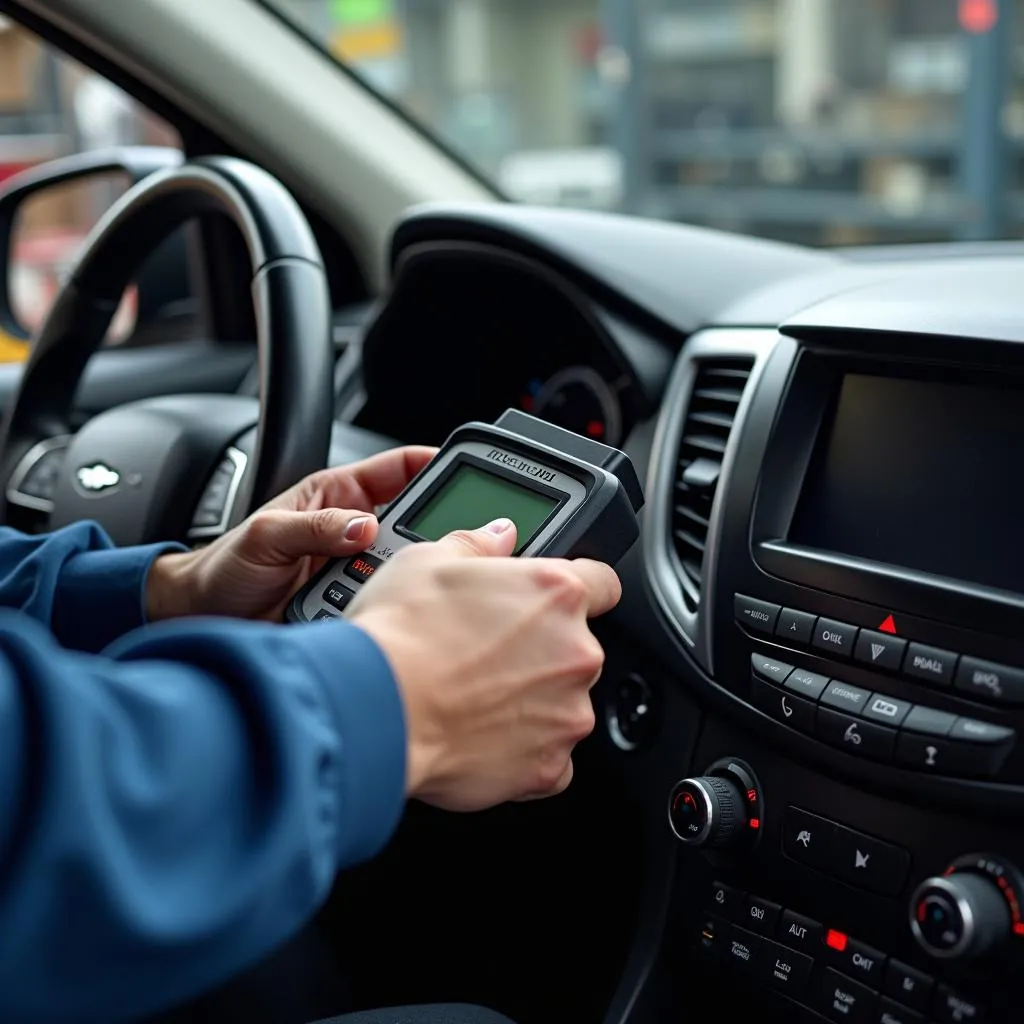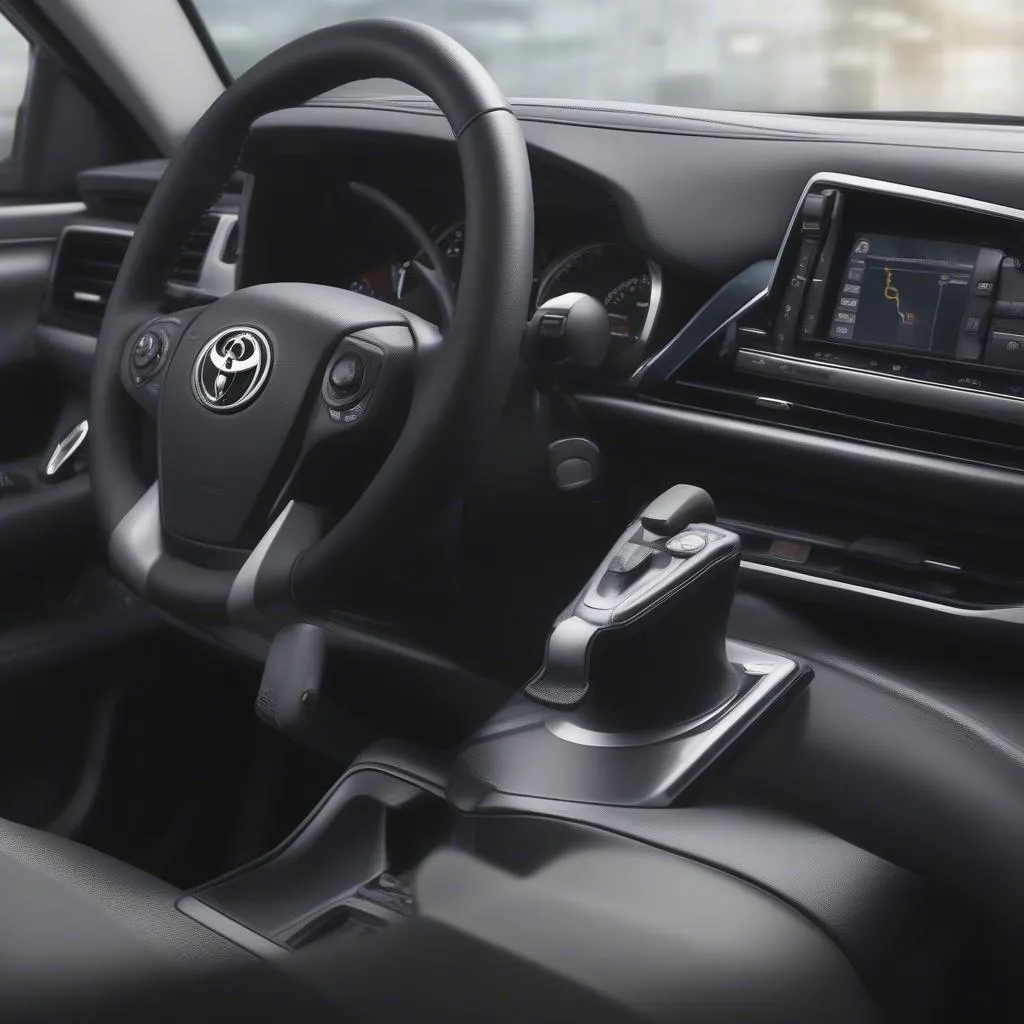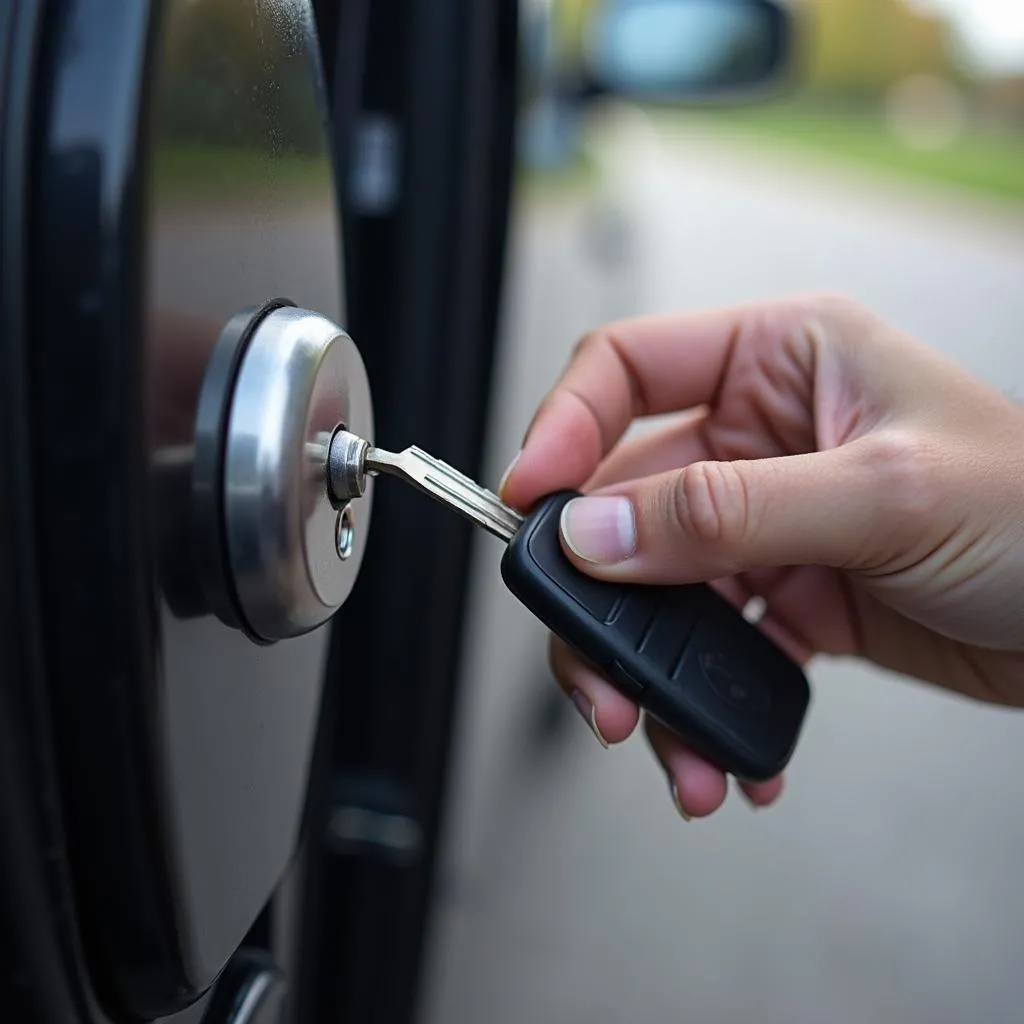A flashing car security light or a car that won’t start can be frustrating, especially when the culprit seems to be a persistent anti-theft system. But don’t worry, you’re not alone. Many car owners experience this issue, and the good news is that it’s usually solvable. This article will guide you through the common causes of a triggered car alarm system, how to identify them, and the steps to get your car back on track.
Understanding Your Car’s Anti-theft System
Before diving into troubleshooting, it’s helpful to understand the basics of your car’s anti-theft system. Modern vehicles often have an immobilizer system, a crucial part of your anti-theft system. This system prevents the engine from starting without the correct key or key fob present, deterring theft. While incredibly effective, sometimes the immobilizer can act up, causing your anti-theft system to engage unnecessarily.
Common Causes of Anti-theft System Malfunctions
Several issues can trigger your car alarm and immobilizer, leading to a frustrating experience. Here are the most common culprits:
1. Weak or Dead Car Battery:
Your anti-theft system relies on a stable power supply from your car battery. A weak or dead battery can disrupt this, confusing the system and setting off the alarm.
2. Faulty Key Fob Battery:
Keyless entry systems depend on a signal from your key fob to disarm the anti-theft system. If the battery in your key fob is weak or dead, the system may not receive the correct signal, leading to activation.
3. Malfunctioning Key Fob:
Beyond just the battery, the key fob itself can malfunction. Internal damage or wear and tear can disrupt the signal it sends to your car, triggering the anti-theft system.
4. Faulty Ignition Switch:
The ignition switch is responsible for reading your key and signaling the anti-theft system. A worn-out or faulty ignition switch might not communicate correctly with your key, causing the anti-theft system to engage.
5. Triggered Car Alarm Sensors:
Car alarms are equipped with sensors that detect impacts or attempts to enter your vehicle. Sometimes, these sensors can be overly sensitive, triggering the alarm due to vibrations, loud noises, or even changes in air pressure.
6. Faulty Anti-theft Module:
In some cases, the issue lies with the anti-theft module itself. This module is the brain of the system and a malfunction can lead to various problems, including a constantly triggered alarm.
Identifying the Issue: How to Diagnose the Problem
Pinpointing the exact cause of your anti-theft system malfunction is crucial for an effective fix. Here’s a step-by-step guide to help you diagnose the problem:
- Check Your Car Battery: Begin with the basics. Examine your car battery for signs of corrosion or loose connections. If you have a voltmeter, check the battery’s voltage. A reading below 12 volts usually indicates a weak battery.
- Inspect Your Key Fob: Replace the battery in your key fob, even if it seems relatively new. A fresh battery can often resolve seemingly unexplained anti-theft issues.
- Listen for Unusual Sounds: When you try to start your car, listen for any clicking sounds or a rapidly flashing security light. These could indicate a problem with the ignition switch or a faulty starter.
- Observe the Security Light: The way your car’s security light blinks can offer valuable clues. A rapidly flashing light typically suggests a triggered alarm, while a slow blink or a light that stays on might point to an immobilizer issue.
 Car anti-theft system components
Car anti-theft system components
Tools for Fixing Anti-theft System Problems
Having the right tools can make diagnosing and fixing anti-theft system issues easier:
- Voltmeter: To test your car battery’s voltage.
- Code Reader: An OBD2 code reader can help identify specific error codes stored in your car’s computer, potentially revealing the source of the anti-theft problem.
- Replacement Key Fob Battery: Keep a spare handy to quickly rule out key fob battery issues.
Troubleshooting Steps
Once you’ve identified the likely cause, here are some troubleshooting steps you can try:
- Jump-Start Your Car: If you suspect a weak battery, try jump-starting your car. This can provide enough power to potentially reset the anti-theft system.
- Reprogram Your Key Fob: Sometimes, reprogramming your key fob can re-establish communication with your car’s anti-theft system. Refer to your owner’s manual for instructions specific to your vehicle model.
- Check Fuses and Relays: Consult your owner’s manual to locate the fuses and relays related to your car’s anti-theft system. Inspect them for any blown fuses or damaged relays, and replace them if necessary.
 Mechanic using diagnostic tool on car
Mechanic using diagnostic tool on car
When to Seek Professional Help
While some anti-theft system issues can be resolved with basic troubleshooting, more complex problems often require professional attention. If you’ve tried the steps above and are still experiencing issues, it’s best to consult a qualified automotive electrician or mechanic.
Looking for reliable diagnostic and programming solutions for your car’s anti-theft system? Check out the range of products offered by Cardiagtech, designed to help you diagnose and resolve automotive electrical issues.
FAQs about Car Anti-theft Systems
Q: Can I disable my car’s anti-theft system entirely?
A: While technically possible, it’s generally not recommended. Disabling your anti-theft system leaves your vehicle vulnerable to theft.
Q: Can aftermarket car alarms cause anti-theft system problems?
A: Yes, improperly installed or incompatible aftermarket alarms can interfere with your car’s factory anti-theft system, leading to issues.
Q: My car horn keeps honking. Is this related to the anti-theft system?
A: In many cases, yes. A honking horn can be part of your car alarm’s response to a perceived threat.
Q: How much does it cost to fix a car anti-theft system?
A: The cost of repair varies widely depending on the specific issue, vehicle make and model, and labor rates in your area.
Q: Can extreme temperatures affect my car’s anti-theft system?
A: Yes, extreme heat or cold can sometimes impact the performance of your car’s electrical components, including the anti-theft system.
Conclusion
Dealing with a malfunctioning anti-theft system can be a nuisance, but understanding the potential causes and having the right information can make the situation less daunting. Remember to start with the basics, check your battery and key fob, and then move on to other potential culprits. If you’re unable to pinpoint the problem or are uncomfortable tackling the issue yourself, don’t hesitate to seek assistance from a professional automotive electrician or mechanic.
For more information on diagnosing and resolving car anti-theft system problems, explore the helpful resources available at CARDIAGTECH [link to relevant page on CARDIAGTECH].


